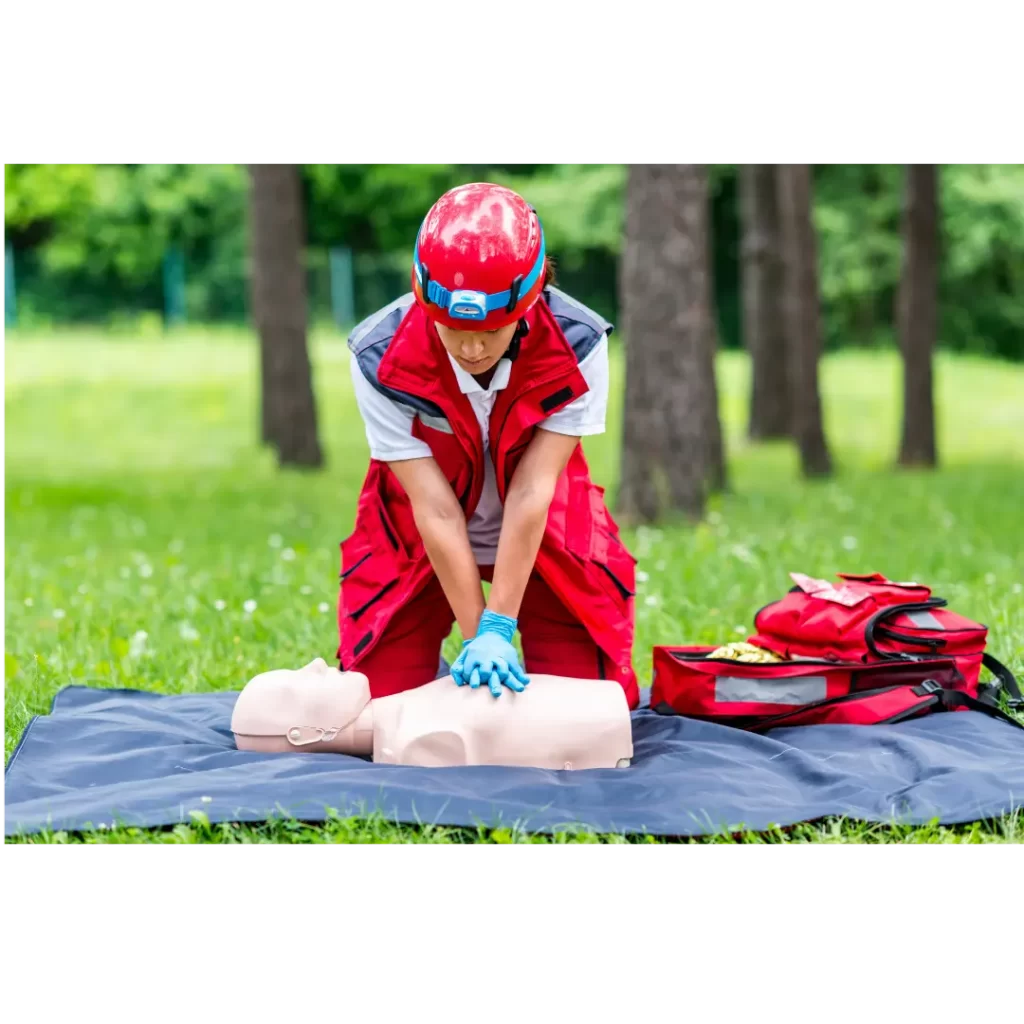
In today’s fast-paced world, workplace safety is paramount. Every employer has a responsibility to ensure a safe environment for their employees. One crucial aspect of workplace safety involves equipping employees with the skills to respond to emergencies, particularly medical emergencies. Equipping your staff with CPR (Cardiopulmonary Resuscitation) certification is an investment in the well-being of your employees and demonstrates your commitment to a safe work environment. This article explores the importance of CPR for Professionals in Colorado Springs, its role in fulfilling workplace safety requirements, and resources for obtaining CPR certification in the city.
Sudden cardiac arrest (SCA) is a leading cause of death in the United States, claiming hundreds of thousands of lives each year. It can strike anyone, anywhere, at any time. The critical minutes following an SCA are crucial for survival. Early intervention with CPR significantly increases the chances of survival.
Here’s why CPR certification is essential for professionals in Colorado Springs:
Currently, there is no state law in Colorado mandating CPR certification for all workplaces. However, specific industries or professions may have regulations requiring CPR training for their employees. It’s crucial for employers to consult with the relevant regulatory bodies governing their industry to determine any specific CPR training requirements. Even in the absence of legal mandates, CPR certification demonstrates an employer’s proactive approach to workplace safety and could be considered a best practice.
Here are some resources to help you determine if CPR certification is required for your industry in Colorado:
Beyond the potential legal requirements and the ethical imperative of employee safety, CPR certification offers several benefits for Colorado Spring businesses:
Colorado Springs offers a variety of CPR training providers. When choosing a CPR course for your employees, consider the following factors:
Identifying the right CPR training provider for your employees in Colorado Springs requires exploring various resources. Here’s a detailed breakdown of the options mentioned previously, along with additional suggestions to broaden your search:
Colorado Springs Chamber of Commerce: The Colorado Springs Chamber of Commerce is a membership organization dedicated to supporting businesses in the area. While they might not maintain a dedicated list of CPR training providers, the Chamber can be a valuable resource for connecting with local businesses.
Equipping your employees with CPR certification in Colorado Springs involves a well-defined process. Let’s delve deeper into each step to ensure a smooth and successful experience for both you and your staff:
As mentioned earlier, explore the resources provided to identify reputable CPR training providers in Colorado Springs. Here are some additional factors to consider when making your selection:
Once you’ve chosen a training provider, proceed with registering your employees for the chosen CPR course. Many providers offer convenient online registration options. During registration, gather necessary employee information such as names, contact details, and any relevant medical history that might impact participation in CPR training. Some providers might require participants to complete online waivers or pre-enrollment modules before attending the hands-on training session.
While not all CPR courses in Colorado Springs require pre-coursework, some might involve online modules or readings to introduce participants to basic CPR concepts and procedures. Encourage your employees to complete these pre-course materials diligently. Familiarity with the fundamentals can enhance their learning experience during the hands-on training session.
The hands-on training session forms the heart of the CPR certification process. Experienced instructors will guide participants through the various CPR techniques for adults, children, and infants (if applicable to your chosen course). The session will involve:
By actively participating in these elements, your employees will gain the necessary knowledge and practical skills to perform CPR confidently.
Most CPR courses culminate in a skills evaluation. During this assessment, participants will demonstrate their competence in performing CPR procedures on mannequins. The evaluation might involve individual assessments or simulated scenarios where participants work together as a team. This ensures that participants can effectively perform CPR in various situations.
Upon successful completion of the course and skills evaluation, participants will receive a CPR certification card. This card typically remains valid for two years, signifying their competency in CPR skills.
CPR certification requires renewal every two years to ensure continued competency. Many CPR training providers offer renewal courses specifically designed to refresh skills and knowledge. Renewal courses typically involve shorter durations and focus on practical skill demonstrations rather than extensive re-teaching of core concepts.
Here are some tips for maintaining CPR certification for your employees:
CPR certification for professionals in Colorado Springs is a valuable investment in workplace safety. It empowers employees to act decisively in emergencies, potentially saving lives. Furthermore, CPR training demonstrates a company’s commitment to employee well-being and fosters a positive safety culture within the workplace. By choosing the right training program and maintaining CPR certifications, Colorado Springs businesses can create a safer environment for their employees and contribute to a more prepared and empowered workforce.

Proud to be an American Heart Association Training Site aligned with GoRescue Birmingham, AL
Copyright 2025© CPR Classes Near Me